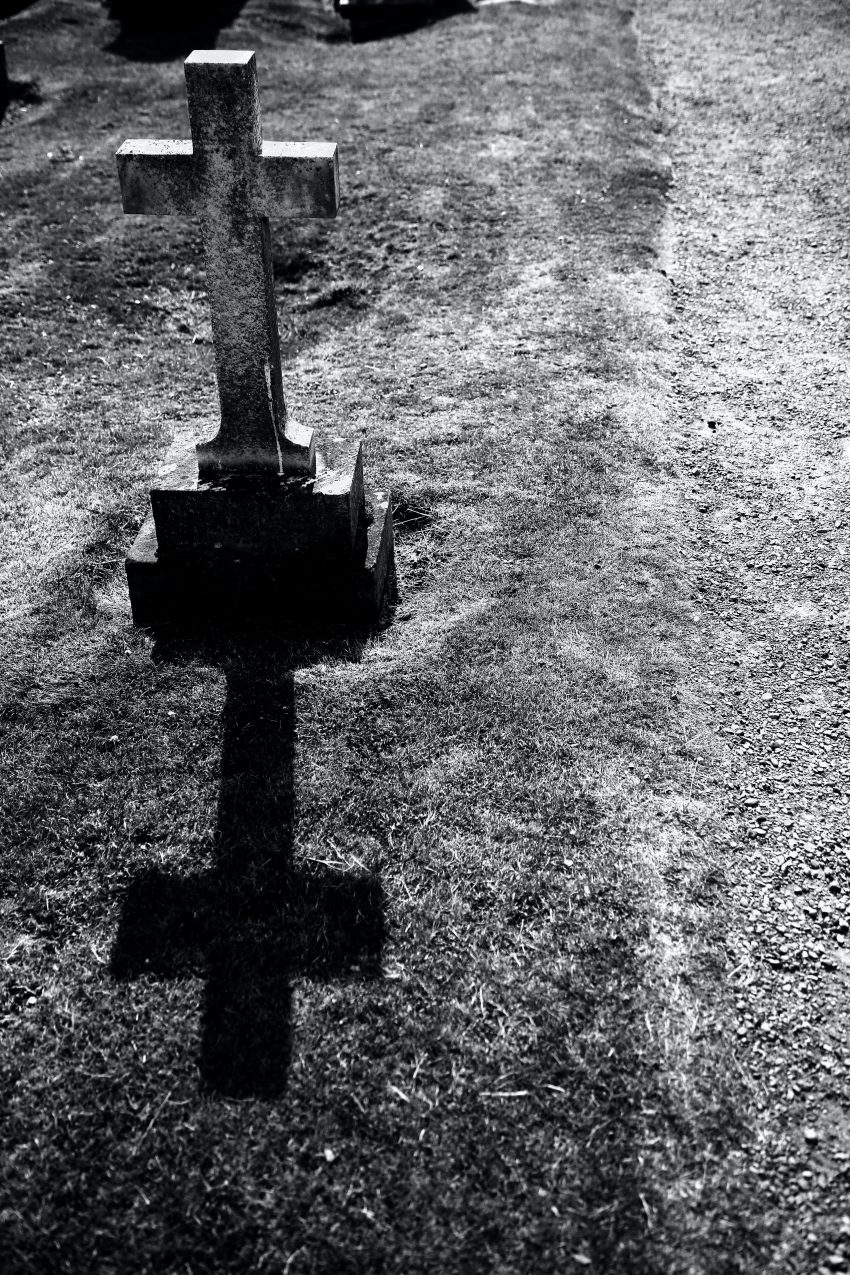In preparation for Ash Wednesday, the Rev. Erik Hoeke offers reflections on the importance of facing our own mortality.
In the United Methodist liturgy for a service of death and resurrection, the opening prayer asks God to “give to us now your grace, that as we shrink before the mystery of death, we may see the light of eternity” (emphasis added). This is one of the most meaningful phrases I spoke in 14 years of serving local churches, and I said it aloud regularly. It is a profound phrase meant to acknowledge the human challenge of facing death while also giving us the fortitude to do just that. And yet, my experience over those 14 years leads me to believe that many of us in contemporary American society are ill-prepared to face death, whether our own or the death of someone we love.
Speaking Death
During my M.Div. studies my professor of pastoral care, Dr. Karen Scheib (who incidentally just spoke at PTS last week), instructed us to be intentional about using the word death in our ministry, especially at funerals and in ministry with the grieving. Her rationale was that the euphemisms we use for death are a means of softening the truth in order to avoid facing that truth. This practice is so common that even Christians rarely use the words death or dying anymore. Instead, we say, people “pass on”, “have gone on to glory”, “are in a better place”, are “called home to be with the Lord”, or are “at eternal rest.” There is nothing inherently wrong about using these phrases. But complete avoidance of using the word death, argued Dr. Scheib, only stunts the grieving process that is both necessary and healthy to fully experience.
So I always did my best to proclaim that people in the church had died. From the pulpit, at the funeral home, in sympathy cards, and in the homes of those who were grieving, I named the reality among us by speaking that harsh word: death. I often saw the effect it had; it was obvious that people were not used to someone proclaiming the truth of our mortality without shrouding it in euphemism. But I believe that this jarring language helped people face the reality—and the mystery—of death more honestly.
Avoiding the Mystery
Most funeral directors and pastors I know report seeing a decline in recent decades of full visitation and funeral services for those who have died. Not infrequently in my time as a pastor, I would be notified of the death of a parishioner, immediately followed by the funeral director or family member saying, “and there won’t be any services” (this was pre-pandemic). Usually, the rationale given was that the deceased didn’t want a service—they didn’t want people crying over them or making a big deal over their death, so the family would honor their loved one’s pre-planned humility. But funerals aren’t for the person who has died. Funerals are for those who remain to come together, shrink before the mystery of death, and start figuring out how to endure together as a community of those who mourn.
This is just one way people avoid dealing with death. I also know people who are unable or unwilling to enter a funeral home when services are held. They cannot bear, emotionally or psychologically, to be in the presence of death. Other parishioners I’ve counseled have been unwilling to acknowledge that their loved one was in a period of prolonged dying, or that they themselves were.
Fear of the Unknown
All of this is to say that, on the whole, we do not deal with death and dying very well. Our modern empirically-oriented minds do not handle mystery well, and death is still in many ways a mystery. Though we all know that death is inevitable, the lack of knowledge about how or when we will die, and what our final days will look like, is terrifying.
In an existential sense, our fear of dying is also quite natural. Thomas Aquinas’ theory of the natural law says that the first natural inclination of humans is the preservation of one’s own being and human life. We should not and do not desire death. But at the same time, Christians should not fear death. The central story of the Christian faith is the death and resurrection of Jesus Christ, and in Scripture we are invited to share in that suffering and glorification:
“The saying is sure: if we have died with him, we will also reign with him; if we endure, we will also reign with him.” (2 Tim 2:11-12, NRSV)
The Catechism of the Catholic Church agrees: “Because of Christ, Christian death has a positive meaning . . . remembering our mortality helps us realize that we only have a limited time in which to bring our lives into fulfillment.” And the United Methodist Social Principles remind us that “every mortal life will ultimately end in death . . . As Christians we must always be prepared to surrender the gift of mortal life and claim the gift of eternal life through the death and resurrection of Jesus Christ.”
Ashes to Ashes, Dust to Dust
Ash Wednesday is the beginning of the Christian season of Lent. It is a season that prepares us for the resurrection and new life found in Jesus and celebrated on Easter, and yet it begins with the exact opposite: smearing oily, sticky ashes on our foreheads as a reminder of our sinful nature and our mortality. It reminds us that without Christ, we are mortal beings—ashes to ashes, dust to dust. But with Christ, we are more. In the Resurrection, it is death that shrinks in the presence of Christ, not the other way around.
That’s easy to forget in funeral homes, at memorials services, and on this day when we bow our heads to have an ashy cross imposed on our forehead. But Ash Wednesday reminds me of another part of the funeral liturgy, which comes from 1 Corinthians 15:55-57 and is spoken at the committal of the body to its final resting place:
“‘Where, O death, is your victory? Where, O Death, is your sting?’ But thanks be to God, who gives us the victory through our Lord Jesus Christ.”
The Rev. Erik Hoeke is a writer at Pittsburgh Theological Seminary and an ordained minister in The United Methodist Church with 14 years of pastoral ministry experience in Southwestern Pennsylvania. He is currently pursuing a Th.M. in Moral Theology at Boston College with a focus on end-of-life ethics.


